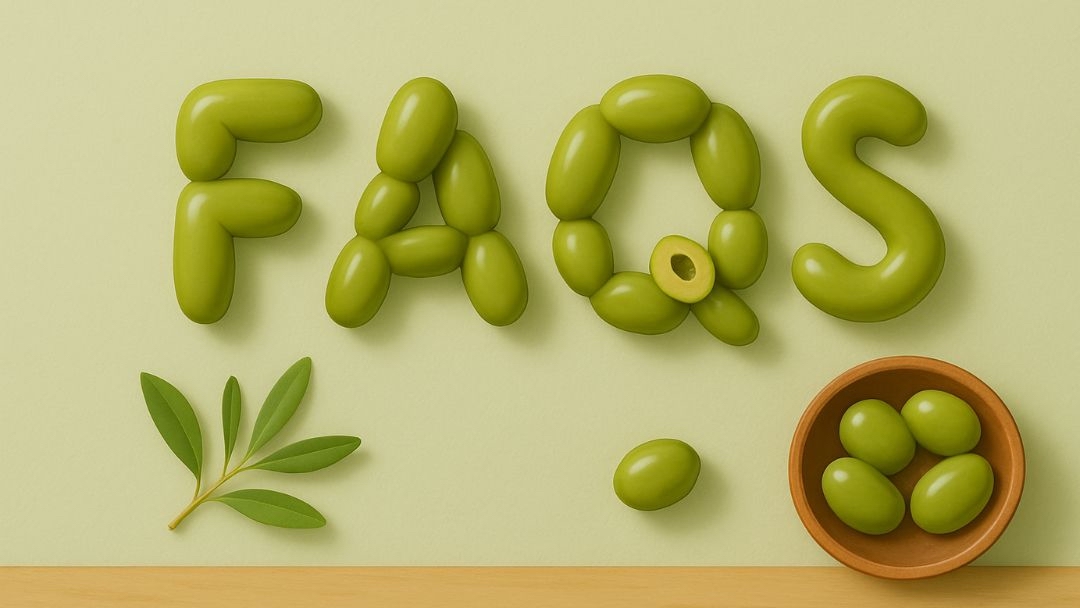Understanding the Olive Theory: What Ted Got Right—And What He Totally Didn’t
Is your relationship Olive Theory-approved? This fun pop culture concept, born from How I Met Your Mother, suggests that couples thrive when their quirks complement each other. One loves olives, the other doesn't. It's not about food, its about emotional balance, small gestures, and the beauty of being different together.


Back
6 mins read
I’ll be honest: on my real first date, I was so nervous I barely remember what I ordered. There were butterflies, awkward laughter, and that occasional panic of “Is there something in my teeth?”
We talked about movies, childhood dreams, and—oddly enough—why I hated sushi. He loved it. And while we didn’t get to olives (thankfully), that date would’ve made so much more sense to me today, knowing about something called the Olive Theory.
Fast forward to now: I’m scrolling through TikTok, and boom—'Olive Theory relationship test' is trending. Apparently, if one person likes olives and the other hates them, you're soulmates?
Suddenly, it hits me: maybe that sushi date wasn’t just a night out... maybe it was my own version of an Olive Theory moment. Too bad we didn’t last (he ghosted me a week later, but hey, it’s still a fun theory).
So, what’s the Olive Theory? Does it actually matter in your relationship, and should you start screening your dates based on their olive love—or loathing?"
Let’s unpack it—with olives and all.
Related: 12 Relationship Non-Negotiables to Help You Stop Settling for Less
What Is the Olive Theory?
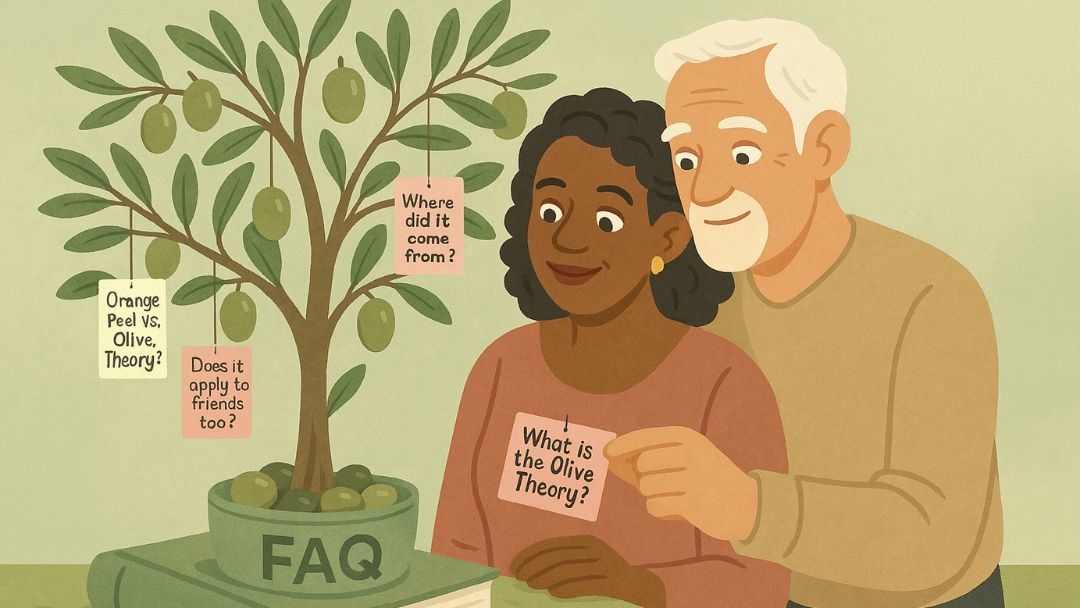
It’s the idea that opposite preferences—like loving or hating olives—can symbolize compatibility.
The Olive Theory is a surprisingly simple pop culture relationship concept: If one person in a relationship likes olives and the other hates olives, they're supposedly more compatible than couples who share the same olive preferences.
In short, this theory suggests that opposites attract—and that having complementary differences, rather than identical tastes, creates a more balanced and harmonious relationship. One person gets all the olives; the other is happy to give them away. That simple sacrifice—however small—symbolizes mutual benefit and emotional cooperation.
It’s just one example of how something seemingly trivial can represent a larger emotional rhythm between partners.
Where Did the Olive Theory Come From?
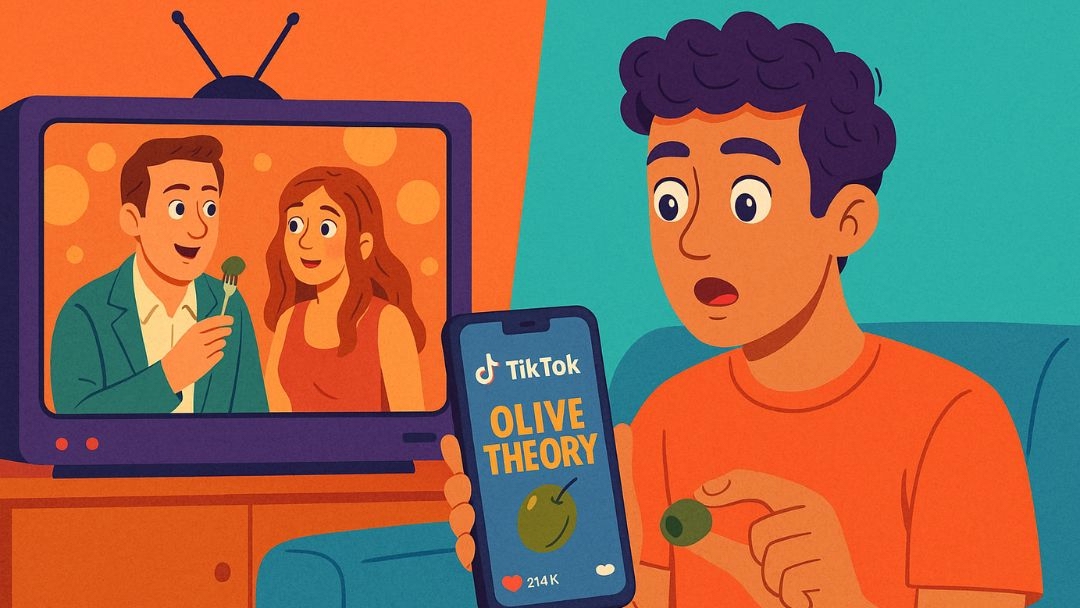
The Olive Theory was born in the pilot episode of How I Met Your Mother ( HIMYM), the long-running sitcom that made Ted’s search for “the one” a TV obsession. In that first episode, Ted (played by Josh Radnor) tells Robin about his friends Marshall and Lily—a “great couple” because Marshall hates olives and Lily loves them.
VIDEO: HIMYM Olive Theory Scene]
While the olive theory originated in a sitcom, it has become a real-life compatibility metaphor.
According to Ted, this difference is a sign of true love—a symbol of how two people can complement each other in the small things. Cue the laughter, cue the “aww,” and cue the TikToks and YouTube videos years later, proving its lasting popularity.
Simple? Yes. Scientifically proven? Not quite. It may not be backed by science, but it stuck, becoming a pop culture favorite and an easy icebreaker on awkward first dates.
But just when you start buying into this adorable theory, the show throws in a twist: Marshall actually likes olives.
Yep—later in the series, we learn he faked his dislike just to impress Lily in the early days of their relationship. Classic sitcom move? Definitely. But by then, the Olive Theory had already cemented itself as a fan-favorite metaphor—one that continued to exist in conversations long after the final season.
Related: Relationship Compatibility Truths—How to Know If You’re Truly a Match
Does the Olive Theory Really Impact Relationships?
In a way, yes — but not because of olives but because of what olives represent.
The truth is, most people don’t break up over olives. They break up over a lack of communication, unmet emotional needs, and clashing values. But if one partner is always willing to offer up the last olive, that might say something meaningful about how they show up emotionally.
While the Olive Theory won't replace therapy, love languages, or good old-fashioned talking about relationship expectations and needs, it actually highlights something deeper. Emotional connection often builds through small, thoughtful moments. And if we really stop to interpret those gestures, they can become surprisingly telling.
Whether it’s olives, orange peels, or your weird obsession with alphabetizing your bookshelf, when someone shows up with curiosity, kindness, and care for your quirks, that’s where connection begins
Does this mean you’re destined for true love based on olive preferences? Not necessarily. But it might suggest you have a foundation for a complementary dynamic — the classic “yin and yang” balance that’s found in many healthy relationships.
Beyond Olives: Why the Olive Theory Makes Relationship Sense—Even Without Olives
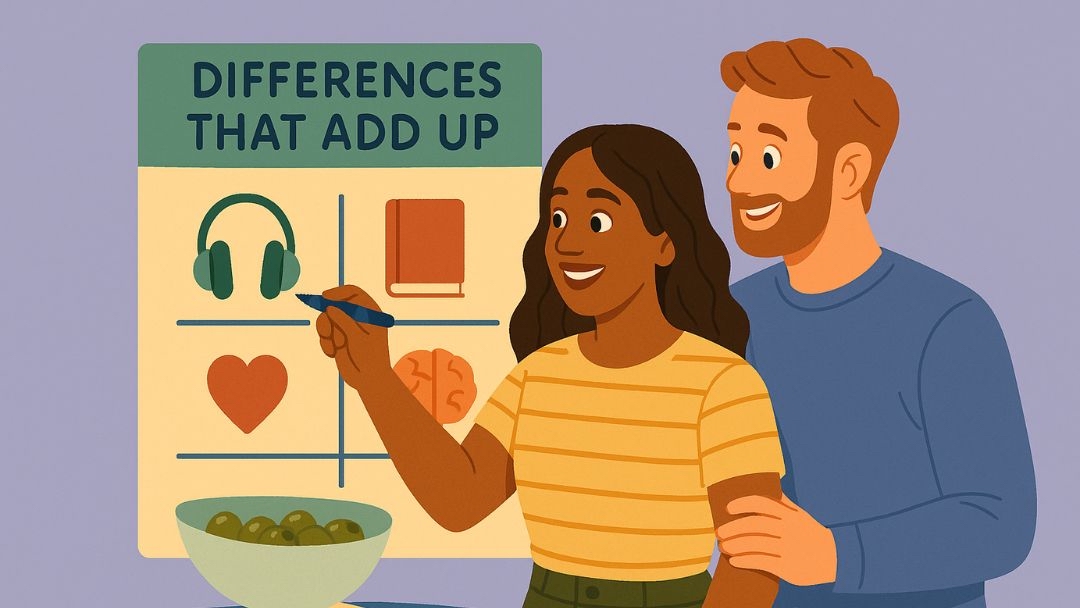
If you’re looking for a scientific framework, the Olive Theory isn’t it. Psychologists don't use it to determine emotional compatibility or long-term relationship success.
But as a cultural metaphor for emotional intelligence and mutuality? It absolutely works. It reflects some real human perspectives about compatibility, love, and the subtle ways relationships thrive.
1. Opposites Attract, But in a Practical Way
The Olive Theory reflects practical, not extreme, opposites that can create balance.
While “opposites attract” makes for a catchy phrase, research shows most people are drawn to partners who share similar values, communication styles, and long-term goals.
That said, complementary traits—like introvert/extrovert dynamics or thinker/feeler temperaments—can help a couple grow by offering balance.
So yes, the Olive Theory fits here. It represents the right kind of difference—present not to subtract, but to add.
2. Olive Theory Works Because It’s Not Just About Food
It’s about your ability to complement, not compete. Sure, olives are the example, but it’s really a stand-in for anything quirky: it’s about whether your differences support or sabotage each other.
It reflects how small, thoughtful gestures often hold more weight than grand ones. When two people respect, celebrate, or even laugh about their differences, they build emotional safety.
And if you're already thinking of the Orange Peel Theory, yes—same flavor profile. One person peels the orange because the other hates doing it. It's not a sacrifice. It's synergy, which becomes even more significant when those gestures are rooted in care, not obligation.
3. It’s a Fun Way to Think About Compatibility
Let’s be honest. Most people don’t walk around saying, “I wonder if we’re psychologically and emotionally aligned in our communication styles.”
No. They say stuff like, “She always lets me have the last fry” or “He never judges my weird podcast choices.” That’s where theories like this win—they take complex relationship dynamics and make them human.
And yes, this kind of behavior reflects a couple's emotional intelligence—the ability to recognize, understand, and respond to each other's needs in small, thoughtful ways.
Plus, when relationship theories involve food? There’s an automatic interest boost.
So...Should You Break Up If You Both Love or Hate Olives
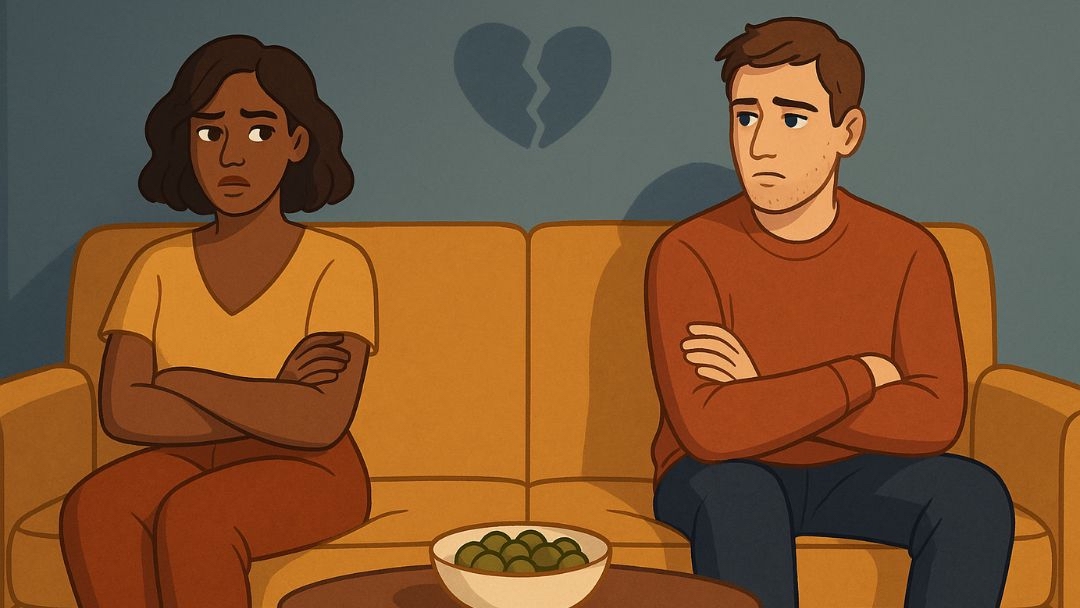
Absolutely not—shared preferences don't doom a relationship.
Shared food preferences might spark fun conversations, but they don’t define your relationship’s fate. I mean, Neil Patrick Harris (who played Barney) famously ignored most relationship norms on the show and still ended up growing emotionally in the end.
What matters more is how two people—you and your partner—navigate your differences. Whether it’s olives or how you load the dishwasher (yes, this one’s controversial), it’s about compromise.
Besides, some couples both love olives and just order extra. That's not a breakup, that's a briny bonus that could eventually become a shared inside joke.
Related: Should You Take a Break in Your Relationship? Here's How to Tell
How to Use the Olive Theory in Your Relationship
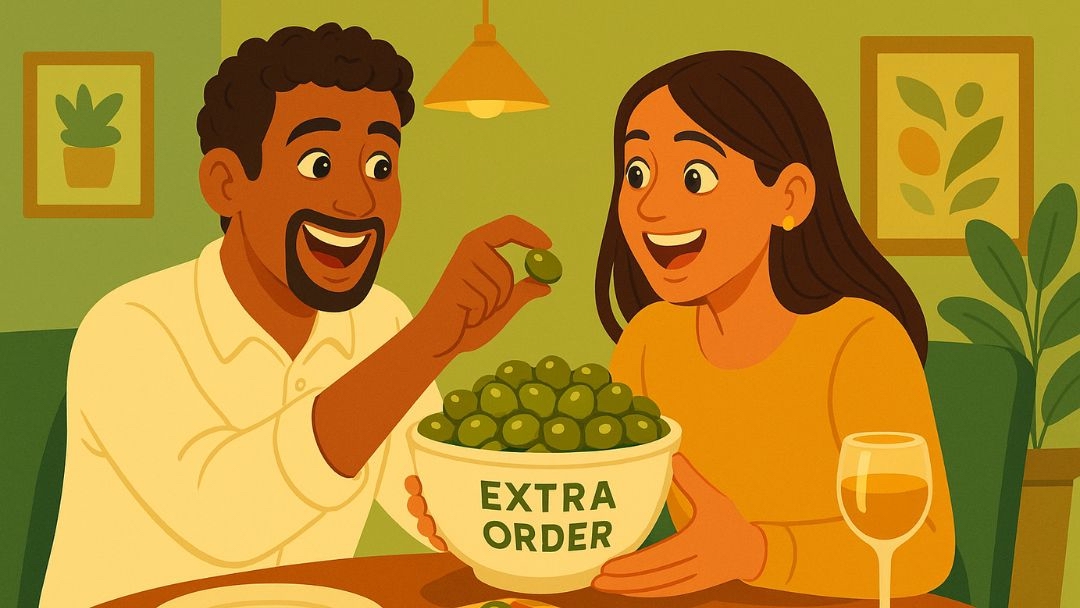
While it’s not a scientific method, the Olive Theory offers a playful way to reflect on how your differences play out. If you’re dating—or deep into a relationship—here’s how to apply the olive mindset:
1. Know the Difference Between Fun and Foundation
The Olive Theory is cute. But don’t confuse cuteness with compatibility. Use it as a doorway into deeper conversations, not the whole relationship house.
2. Observe the Little Things
Pay attention to how your partner reacts to your dislikes or quirks. Do they remember? Do they accommodate? That tells you a lot about their empathy and emotional capacity.
3. Celebrate Your Differences
Instead of aiming for a clone of yourself, embrace your differences. They could be the key to building a perfect balance — a team where each person brings something valuable to the table.
4. Don’t Force Compatibility
Just because someone eats olives doesn’t make them the one. Real compatibility lies in how you communicate, compromise, and connect—not what they pick off their pizza. What someone truly believes about love will always matter more than what they snack on.
Final Thoughts: Keep the Olives, Pass the Love
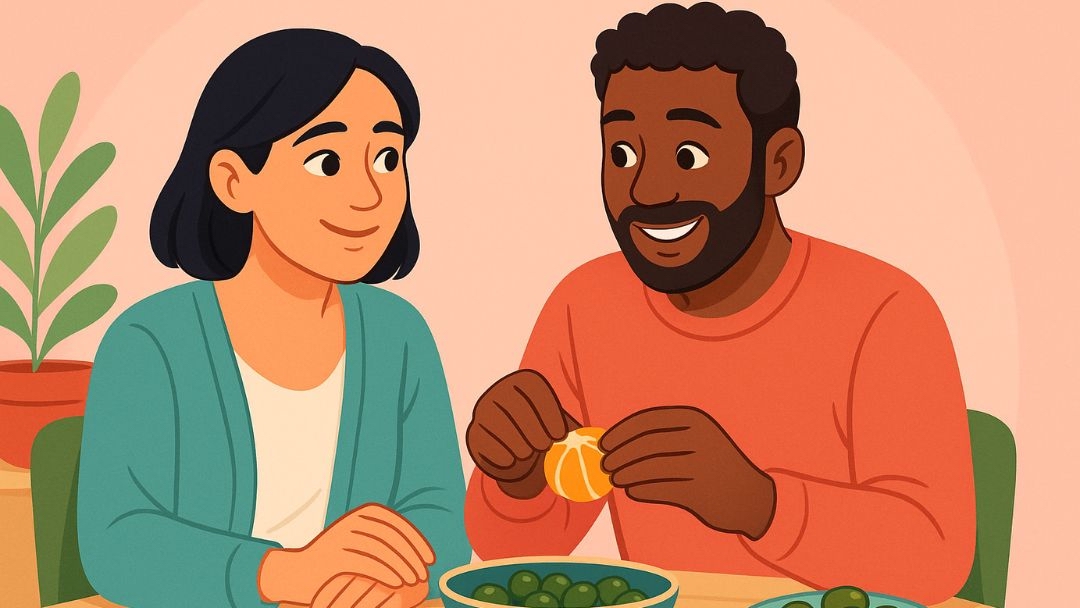
Love isn’t perfect. People aren’t either. But when two individuals find joy in what makes them different—when they laugh over a plate of food and feel seen in the small things—that’s where the magic begins.
And while How I Met Your Mother gave us many quirky ideas (some better left in the series finale... looking at you, Robin ending), the Olive Theory reminds us that relationships and secure attachments are built on small moments, meaningful differences, and the joy of feeling understood.
So, whether you’re Marshall and Lily, Ted and Robin, or just someone trying to make sense of modern dating, don’t overthink the olives. Just notice the patterns. Notice the way someone remembers the one thing you hate—and eats it for you anyway.
Because sometimes, that’s what love looks like.
And hey, if you still hate olives? There’s probably someone out there who thinks that’s perfect.
Another common analogy for relationships? Walking on eggshells; but that’s the complete opposite of olive theory!
Frequently Asked Questions About the Olive Theory
Q: What is the Olive Theory in Relationships?
The Olive Theory is a relationship concept suggesting that couples are more compatible when one person likes olives, and the other doesn’t.
Q: Where did the Olive Theory Come From?
It originated in the pilot episode of How I Met Your Mother, where Ted claims his friends Marshall and Lily are a perfect couple because of their opposite olive preferences.
Q: How is it Different from the Orange Peel Theory?
The Orange Peel Theory focuses on acts of service, like peeling an orange for someone you love. The Olive Theory is about preferences and how complementary opposites can create balance.
Q: Can the Olive Theory Apply Outside of Romantic Relationships?
Yes. It can reflect the give-and-take dynamic in friendships, family bonds, or platonic relationships where balance and mutual care matter.


Return to Blog

